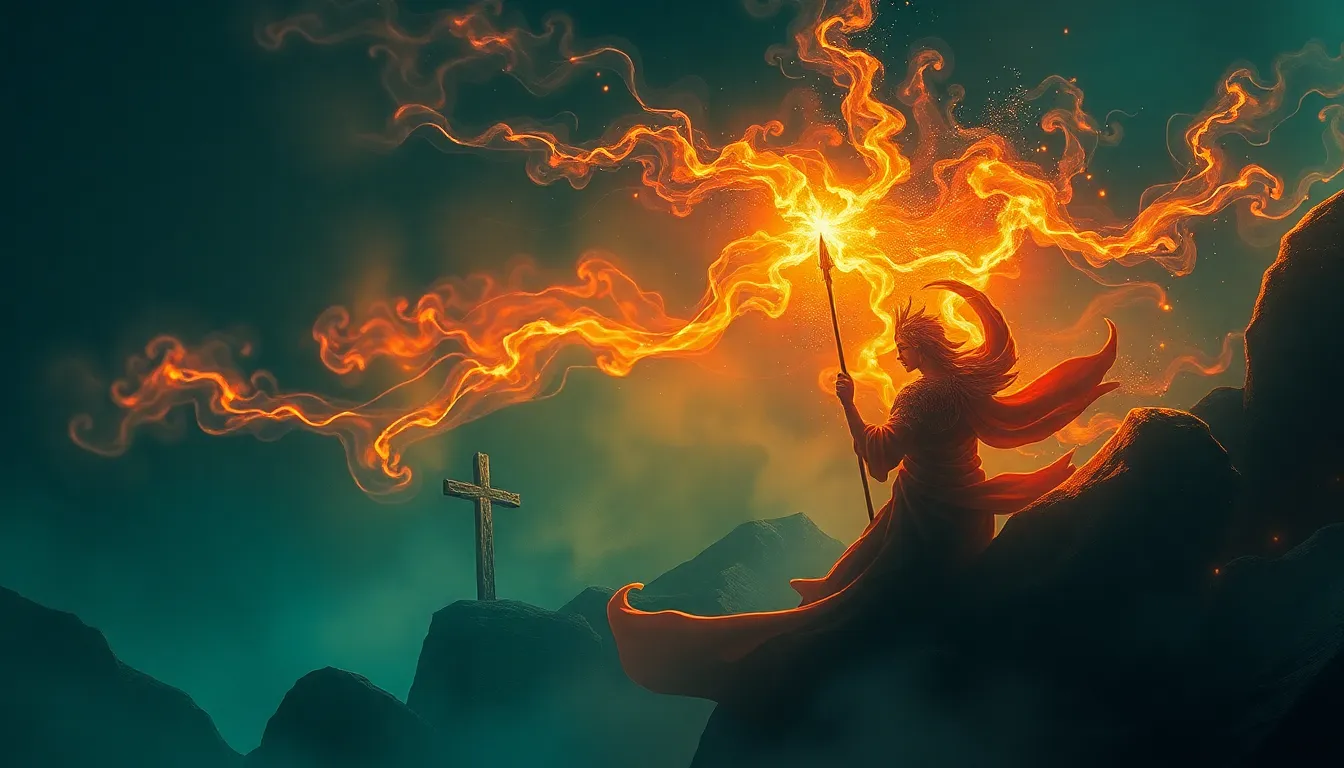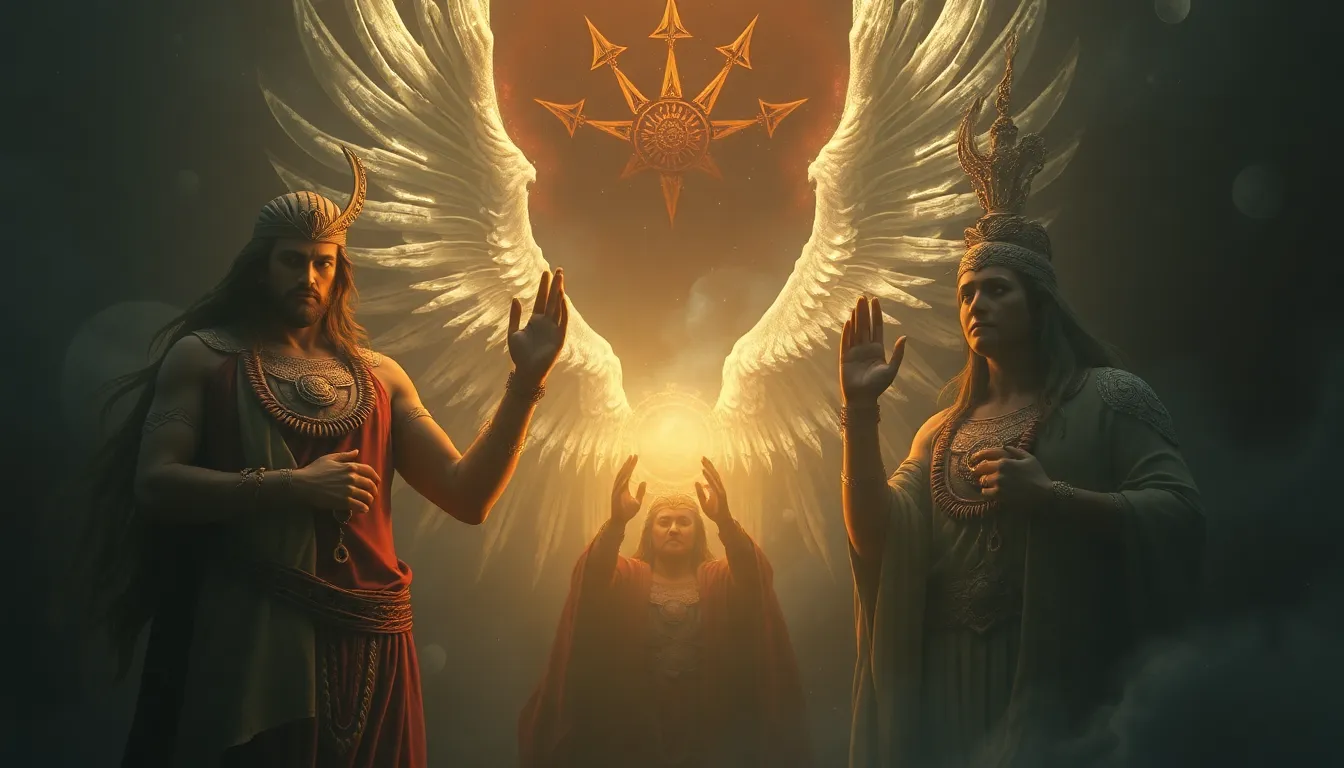The Mythical Dimensions of Cultural Heroes and Their Stories
I. Introduction
Cultural heroes are figures that embody the values, ideals, and struggles of a society. They serve as symbols of aspiration, reflecting the traits that a culture admires. The narratives surrounding these heroes, often steeped in mythology, play a crucial role in shaping cultural identities and collective memories. This article aims to explore the multifaceted dimensions of cultural heroes, their historical contexts, psychological implications, and their evolving narratives in a modern context.
II. The Concept of the Hero in Mythology
The concept of heroism has varied across cultures and historical contexts. From ancient epics to modern tales, heroes embody the virtues and vices of humanity. Joseph Campbell’s Hero’s Journey framework outlines the archetypal stages that many heroes undergo, including:
- Call to Adventure
- Crossing the Threshold
- The Road of Trials
- Return with the Elixir
This journey illustrates the duality of heroes, who often possess both human flaws and divine attributes. Such complexities make them relatable and admirable, as they navigate their challenges, mirroring our own struggles.
III. Cultural Heroes in Ancient Civilizations
Ancient civilizations produced a rich tapestry of heroes, each serving distinct roles within their mythologies:
A. Examination of heroes in Greek mythology
Greek mythology is filled with iconic heroes such as Hercules and Achilles. Hercules, known for his incredible strength and twelve labors, represents the struggle against insurmountable odds. Achilles, with his tragic fate, exemplifies the hero’s vulnerability and the consequences of pride.
B. The role of heroes in Egyptian mythology
In Egyptian mythology, heroes like Osiris and Horus symbolize resurrection and kingship. Osiris’s story of death and rebirth resonates with themes of regeneration, while Horus embodies the fight against chaos and the rightful claim to power.
C. Mesopotamian heroes and their significance
Gilgamesh, a monumental figure in Mesopotamian literature, embarked on a quest for immortality, exploring profound philosophical questions about life and death. His adventures highlight the human condition and the search for meaning.
IV. Heroes in Modern Mythology
As societies evolved, so did the narratives of their heroes. Modern literature and media have witnessed a transformation in the portrayal of cultural heroes:
A. The evolution of hero narratives in contemporary literature and media
Today’s heroes often grapple with societal issues, reflecting contemporary values and challenges. They are no longer infallible figures but complex characters facing moral dilemmas.
B. Exploration of modern cultural heroes
Superheroes in comics and films, such as Spider-Man and Wonder Woman, embody ideals of justice, courage, and resilience. They often represent marginalized voices, addressing themes of identity and social justice.
C. The impact of technology and globalization on hero narratives
Globalization and digital media have broadened the narratives of heroes, allowing diverse stories to emerge. Online platforms and social media have given rise to a new generation of heroes who inspire activism and change.
V. The Functions of Cultural Heroes
Cultural heroes serve multiple functions within societies:
A. Heroes as symbols of values and ideals
They embody the core values of a culture, acting as role models for behavior and ethics.
B. The role of heroes in societal cohesion and identity
Heroes create a shared narrative that fosters unity and a sense of belonging among individuals.
C. Heroes as embodiments of resistance and resilience
In times of crisis, heroes often emerge as figures of hope and resistance, inspiring communities to overcome adversity.
VI. The Psychological Dimensions of Cultural Heroes
The exploration of cultural heroes also delves into the psychological aspects of their narratives:
A. Jungian analysis of the hero archetype
Carl Jung’s theories on archetypes reveal how the hero represents the Self, encompassing both conscious and unconscious aspects of the psyche.
B. The hero’s journey as a reflection of personal growth and self-discovery
The hero’s journey symbolizes the individual’s quest for identity and purpose, mirroring our personal challenges and triumphs.
C. The impact of hero narratives on individual and collective psychology
Hero stories can influence mental health and community well-being, offering frameworks for coping with life’s challenges.
VII. Critiques and Reinterpretations of Heroism
As societal views evolve, so do interpretations of heroism:
A. Feminist perspectives on the traditional hero archetype
Feminist critiques have challenged the male-dominated narratives of heroism, advocating for stories that highlight female strength and agency.
B. Postcolonial critiques of cultural heroes and their narratives
Postcolonial theorists examine how traditional heroes often reflect colonial narratives, urging a reevaluation of who is celebrated and why.
C. The rise of anti-heroes and their significance in modern storytelling
The emergence of anti-heroes, such as Walter White from “Breaking Bad,” complicates the notion of heroism, highlighting moral ambiguity and human flaws.
VIII. The Role of Mythical Heroes in Social Change
Many cultural heroes have inspired significant social movements:
A. Case studies of heroes who have inspired social movements
Figures like Martin Luther King Jr. and Malala Yousafzai exemplify how heroes can galvanize communities and push for change.
B. The influence of cultural heroes on political landscapes
Political heroes often shape public opinion and influence policy, serving as catalysts for societal reform.
C. Myths as catalysts for transformation and activism
Mythical narratives can motivate individuals to engage in activism, framing their struggles within a larger context of heroic resistance.
IX. The Future of Cultural Heroes and Their Myths
Looking ahead, the evolution of cultural heroes is likely to continue changing:
A. Predictions for the evolution of hero narratives in a changing world
As societies face new challenges, heroes will emerge to address contemporary issues, reflecting the values of future generations.
B. The role of digital media and storytelling in shaping future heroes
Digital storytelling allows for broader representation and the creation of heroes from diverse backgrounds and experiences.
C. The potential for new cultural heroes emerging from diverse backgrounds
Diverse narratives will enrich the tapestry of heroism, offering new perspectives and redefining what it means to be a hero.
X. Conclusion
In summary, cultural heroes and their myths play a significant role in shaping societal values, identity, and collective memory. As we explore the dimensions of these figures, we uncover the complexities of heroism, the cultural contexts that inform their narratives, and their potential to inspire change. The future of cultural heroes is bright, as new stories emerge, reflecting the evolving landscape of human experience and aspiration.



